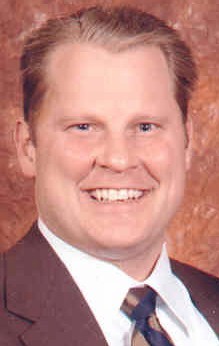Today, Sen. Larry Grooms offered a plan with sweeping property tax reforms. I call it the Groom Broom. Keep in mind that there will be winners and losers in all property tax reform proposals. When the homeowner is the winner, I all ears!
Below are the highlightsEstablishes the School Trust Fund and distributes its proceeds to all school districts on a weighted pupil basis.
Provides a circuit-breaker tax credit for property taxes paid in excess of 2% of the adjusted gross household income for homestead eligible owner occupied homes.
Removes Local School Operation Property Taxes off all classes of property except for school districts eligible for the hold harmless provision of this amendment.
Hold harmless provision allows school districts which would receive less revenue under this plan to collect a local property tax for the deficit amount on all classes of property except for owner occupied homes for an amount not to exceed the prior years total state and local revenues adjusted by a growth factor as determined by the BEA.
Redirects EIA and EFA funding sources into the School Trust Fund and directs additional revenue generated by the local school tax substitution into the School Trust Fund.
Substitution taxes for local school operation taxes are derived from:
-2-cent increase in the state sales and use tax.
-Surtax on beer, wine, alcoholic liquors equal to the existing surtax.
-Cigarette tax increase of $0.93 cents per pack.
-Deed recording fee increase equal to the existing deed recording fee.
-Redirects inventory tax and manufacturer’s depreciation tax reimbursements to the School Trust Fund.
-Increases sales tax cap on automobiles to $900.
-Creates statewide property tax of 42 mills for all classes of property except owner occupied homes.
Removes a limited number of specific sales tax exemptions which include:
-Newsprint paper and newspapers.
-Direct mail promotional advertising and postage used for advertising services.
-Charges for telegraph messages, carrier access and access line charges established by FCC and SC PSC.
-Supplies used for consumption aboard ships in intercoastal trade or foreign commerce.
-Bags, wrapping paper, containers used in the sale of a product.
-Supplies, technical equipment and machinery sold to radio, cable and television stations.
-Motion picture film sold to or rented by theaters.
-Railroad cars, locomotives and monorails; engines and parts used to propel them.
-Vehicle extended service contracts and warranties.Clothing used in Class 100 clean air environments.
 irresponsible spending"! Well, we fought the good fight, yet when the votes came, we failed. At the end, the big spenders win and the taxpayers lose. As I try to be optimistic in every bad situation, I have drawn one positive note in this losing song of wasteful spending and I hope you can follow my tune. Ponder this. Politically, this is a win for Gov. Sanford. He gets a big fat budget with more pork than Circle M BBQ. I'm predicting Mark throws out his rotator cuff scratching through the line-item-vetoes.
irresponsible spending"! Well, we fought the good fight, yet when the votes came, we failed. At the end, the big spenders win and the taxpayers lose. As I try to be optimistic in every bad situation, I have drawn one positive note in this losing song of wasteful spending and I hope you can follow my tune. Ponder this. Politically, this is a win for Gov. Sanford. He gets a big fat budget with more pork than Circle M BBQ. I'm predicting Mark throws out his rotator cuff scratching through the line-item-vetoes.